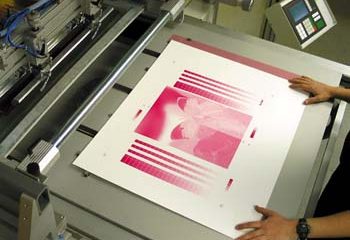Get What You Want
Published
20 years agoon
Ever feel as if you and your employees are approaching every aspect of your business from opposite directions? You want to increase productivity. They want more time off. You want to avoid unnecessary expenditures. They want a new coffee machine in the break room. As an owner or manager, you may be frustrated with the dissimilarity between what you desire and what your employees seem to want. But once you understand what all these wants really represent, you’ll discover that you and your staff are aspiring to the same goals.
Ever feel as if you and your employees are approaching every aspect of your business from opposite directions? You want to increase productivity. They want more time off. You want to avoid unnecessary expenditures. They want a new coffee machine in the break room. As an owner or manager, you may be frustrated with the dissimilarity between what you desire and what your employees seem to want. But once you understand what all these wants really represent, you’ll discover that you and your staff are aspiring to the same goals. What owners and managers want You’re in charge and are responsible for keeping products moving out the door and profits flowing back into your company. Your perspective is that you pay employees a reasonable wage and treat them fairly, so you have a right to expect an equal return on your investment in the form of high-quality finished products that are produced in a timely manner. I’ve often heard shop owners speak about their employees and state, "I pay them to come to work and simply do a job. Why can’t they just do that for me? What’s so hard to understand about that? I want nothing more, and nothing less." What all owners and managers are really looking for from employees are the qualities discussed in the following sections. Attendance and punctuality Having a full staff on hand to do the job every single day is among the greatest desires of owners and managers. Absenteeism wreaks havoc on efficiency and a shop’s ability to maintain a production schedule. Employers, especially those of the entrepreneurial breed, are generally baffled by workers who show up late or miss work frequently. They want their employees to have the same vision for the company and dedication to its success as they do. Attendance and punctuality reflect an employee’s commitment to the business. Conscientiousness Employers want workers to pay attention to detail. Owners and managers figure they’re not asking for much, which is why they get frustrated when employees cause production errors by ignoring procedures, failing to read paperwork fully, or paying more attention to shock jocks on the radio than to the task at hand. Productivity and efficiency I imagine that anyone who has ever run a production department has had this experience: An urgent matter pulls you off the floor just as a big job is ready to run (one touch of the start button, and the presses would roll). But when you return an hour or so later, you find that not a single product has been printed. Something went wrong that shut down production and put the brakes on the business’s cash flow. A crucial period of production is now forever gone. In your heart of hearts, you know that the problem could have been resolved and the presses would have been running if only you had been there. But after absorbing the facts, you quickly realize that the solution to the problem is a simple one, and that any production employee should have been able to solve the problem without your presence. You’re left with that sinking feeling that you can’t leave for a moment without something going wrong. Worse than that, you realize that no one in production will take initiative to resolve problems without your input and blessing. Employers and managers want workers who can think for themselves and aren’t afraid to devise solutions when they identify problems. Owners and managers expect employees to realize that production is the lifeblood of the company and that it must be performed efficiently and consistently for the business to remain successful.Terry Combs The ability to contribute ideas for improvement Most managers would love if employees contributed ideas and insights about production and performance issues. Many shops thrive on employee input. But others remain as silent as morgues when managers ask for ideas, or, even worse, become a whirlwind of angry and negative comments when the floor opens for discussion. Unfortunately, the common reaction to these situations is to prevent the pain by entirely eliminating the open forum for discussion. The ability to get along with coworkers, customers, vendors, and supervisors Raised voices, temper flare-ups, and other outbreaks on the production floor, in the artroom, or in other areas of a business are accepted occurrences in many companies. Conflicts between employees sometimes arise because one of the employees is unable to coexist with others in the workplace. This scenario is more common than you might think. Sometimes you feel more like a referee than a manager, arriving each morning at a prizefight instead of a business. When these situations arise, you end up wasting valuable work time smoothing feelings and stroking egos. Having tactful, considerate, and level-headed employees who can resolve disagreements without resorting to anger or violence is essential for an efficient and productive operation. What employees want What employees want from you and their job may not be immediately apparent. Often, employees are unhappy on the job without necessarily defining the cause of their unhappiness right away–to you or to themselves. Their unhappiness sometimes manifests itself in mysterious ways. The main wants of employees relate to the following issues: Financial security The primary want (and need) of an employee is to earn a decent wage. After that basic need is met, the desires become more philosophical. Just keep in mind that when employees are unhappy with their jobs, you’ll generally hear it verbalized in terms of wages, regardless of what the real source of the unhappiness is. Respect Employees want respect for their abilities and their efforts. You may hear them say, "Yes, I understand you’re paying me to do a job. You are giving me something of value. But respect the fact that I have something of value to give in return–my time, expertise, and experience. I deserve some respect for what I bring to this company." Appreciation Employees want to feel appreciated for the extra things they do, such as working overtime, catching errors, or bringing in a new account. They say, "Yeah, I’ll come in again this weekend, but I wish you wouldn’t assume that all my time is your time." Have your employees said this to you? I once overheard a conversation during a flight between two pilots who were sitting across the aisle from me, hitching a ride back to their home base. In the midst of their intense conversation, one pilot turned to the other and said, "If he would just one time say, ‘Nice landing.’" The point is, no matter what job we hold or what level we work at, we all need to feel a little appreciation for our efforts, abilities, and personal sacrifices. A positive working environment The work environment refers to two things: the physical environment and the emotional environment. In terms of the physical environment, a positive atmosphere can entail a facility that’s not too hot or cold, a clean and uncramped work area, the availability of hot coffee in the morning, or a decent place to sit down and have lunch or take a break. The criteria for a positive emotional environment might not be as obvious. In most cases, a positive emotional environment is one where employees are free from overly negative, harsh, or critical attitudes from others that do nothing to enhance the employee’s performance or job satisfaction.Terry Combs I’ve visited several production facilities where one employee dictates the level of joy or pain for a great number of other employees. "Jane’s in a foul mood today. Better steer clear of her," you might hear one of these other employees say. This kind of environment is especially oppressive if Jane happens to be you, the manager or owner. Solutions This discussion of your own wants and what your employees want seems to present two very different perspectives. But does it really? If you look a little deeper, you’ll see an interrelationship between the wants of both sides. There is a relationship between employees showing up to work on time and the respect they perceive they’re getting from the boss. There is a relationship between employees keeping production moving and feeling appreciated for their efforts. And there is a relationship between coworkers getting along with others and the environment they face within your company. Tomorrow morning, instead of observing your employees, begin to observe the way you treat them and the attitudes you show them in a variety of situations. Note how you react to problems, including those you perceived just yesterday to be the result of incompetence or lack of interest and dedication on the part of your staff. The best way to exact change in the workplace is to begin with yourself. A week from tomorrow, rock the boat a little. If you have one or more workers who are thorns in the side to you and at least some of your staff, consider dropping the problem employees. Some people make their place in this world by being arrogant, condescending, and aggressive toward those around them. Yes, it’s often easier just to avoid them and leave your other employees to suffer the consequences. It’s easier to justify keeping a problem employee on staff because of his or her ability to set up a press, produce volumes of art, or sell products. But a week from tomorrow, you can make your workplace better by removing obstacles to everyone’s growth, even if those obstacles are long-time staffers. For the next month or two, be patient with your progress. One spin of the wheel won’t turn your ship around on a dime, but it will start that slow motion to starboard. I’ve walked into many screen-printing operations as the new manager, with both owners and employees expecting immediate and drastic change. To the relief of employees and the consternation of ownership, things appeared to change little on the surface, for a little while anyway. But one, two, or three months down the road, a real, palpable change in attitude, atmosphere, and, most importantly, productivity and efficiency, began to take hold. Without realizing what was happening, employees began to arrive to work on time and started offering more suggestions for improving the company. I made sure that employees felt appreciated and respected, which led to the miraculous change in attitude that the owners had been hoping for. It’s all a matter of knowing what the each side wants and understanding how these wants interrelate.
SPONSORED VIDEO
Let’s Talk About It
Creating a More Diverse and Inclusive Screen Printing Industry
LET’S TALK About It: Part 3 discusses how four screen printers have employed people with disabilities, why you should consider doing the same, the resources that are available, and more. Watch the live webinar, held August 16, moderated by Adrienne Palmer, editor-in-chief, Screen Printing magazine, with panelists Ali Banholzer, Amber Massey, Ryan Moor, and Jed Seifert. The multi-part series is hosted exclusively by ROQ.US and U.N.I.T.E Together. Let’s Talk About It: Part 1 focused on Black, female screen printers and can be watched here; Part 2 focused on the LGBTQ+ community and can be watched here.
You may like
Advertisement

The Profit Impact of a Market Dominating Position

Inkcups Announces New CEO and Leadership Restructure

Hope Harbor to Receive Donation from BlueCotton’s 2024 Mary Ruth King Award Recipient
Advertisement
Subscribe

Bulletins
Get the most important news and business ideas from Screen Printing magazine's news bulletin.
Advertisement
Most Popular
-

 Case Studies2 months ago
Case Studies2 months agoHigh-Density Inks Help Specialty Printing Take Center Stage
-

 Art, Ad, or Alchemy2 months ago
Art, Ad, or Alchemy2 months agoF&I Printing Is Everywhere!
-

 Andy MacDougall2 months ago
Andy MacDougall2 months agoFunctional and Industrial Printing is EVERYWHERE!
-

 Columns3 weeks ago
Columns3 weeks ago8 Marketing Mistakes Not to Make When Promoting Your Screen Printing Services Online
-

 Editor's Note2 weeks ago
Editor's Note2 weeks agoLivin’ the High Life
-

 Marshall Atkinson2 weeks ago
Marshall Atkinson2 weeks agoHow to Create a Winning Culture in Your Screen-Printing Business
-

 Thomas Trimingham2 months ago
Thomas Trimingham2 months ago“Magic” Marketing for Screen Printing Shops
-

 News & Trends2 months ago
News & Trends2 months agoWhat Are ZALPHAS and How Can You Serve Them in Your Print Business?











